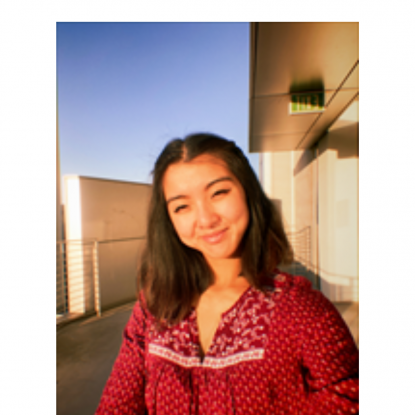Student Spotlight – Amy Vandyken
Meet UCLA undergraduate researcher Amy Vandyken!
Amy Vandyken majors in Political Science and minors in Disability Studies and Education and is in our Undergraduate Research Fellows Program (URFP)! The title of her project is “Incorporating Accessibility into Critical Media Literacy Curriculum for LAUSD Ethnic Studies courses.” She focuses on how Ethnic Studies educators can fuse both Critical Media Literacy and Accessibility education. Her best piece of advice is to not conform to arbitrary standards of “typical research.”
How did you first get interested in your research project?
During fall quarter of my third year, I took an EDUC 187 titled, “Introduction to Critical Media Literacy.” The class focused on analyzing media representations, questioning the process of “normalizing” dominant ideologies, and creating counter-hegemonic media texts. The class was actually taught by Professor Jeff Share, who is now my faculty mentor (as well as an amazing human being)! Then, this past Fall Quarter, I took DESMA 171: Disability, Design, and the Web, which focused on universal design, assistive technology, and disability justice. I hope to merge the knowledge I acquired in both of these courses and in my outside experiences to develop a mock curriculum/base guidelines on how Ethnic Studies educators can fuse both Critical Media Literacy and Accessibility education in order to question the power of the word, image, and sound bite to represent social injustice.
What has been the most exciting aspect of your research so far?
My faculty mentor, Jeff Share, is one of the biggest advocates for Critical Media Literacy education to be a required part of LAUSD’s general curriculum. I am excited to contribute to this work, and push for disability studies to be included in this development. Additionally, it’s been an honor getting to work with so many educators (I want to be a teacher in the future), Critical Media Literacy experts, and Disability Studies experts.
What has surprised you about your research or the research process?
I’ve been surprised with how much autonomy, and in turn, individual responsibility, I have as a student researcher. I honed in on my research question, developed my own research timeline, and cold emailed various experts in the field, with support/guidance from my faculty mentor, but not oversight. It’s been interesting finding a balance between meeting all the deadlines but also recognizing that you can also afford yourself some flexibility.
What is one piece of advice you have for other UCLA students thinking about doing research?
Don’t conform to arbitrary standards of what “typical research.” Also, there will always be people out there who care about your work – make the first person yourself!
What effect do you hope your research has in your field, at UCLA, in your community, or in the world?
Disability/Access is often left to the wayside when it comes to social justice topics – however, it is intricately interwoven with other injustices facing vulnerable communities. I hope for my research to be the first step in my lifelong journey of incorporating disability advocacy and uplifting disabled voices in practice, research, and theory.




